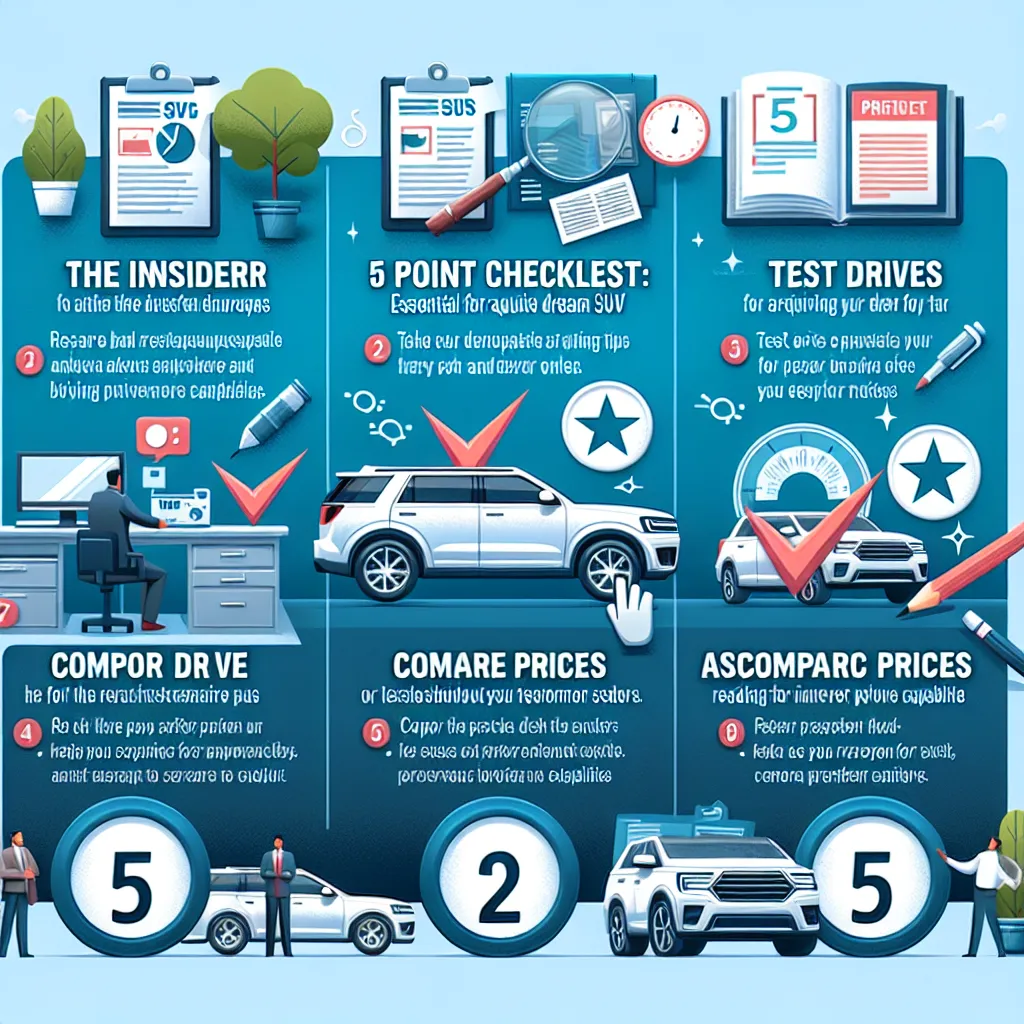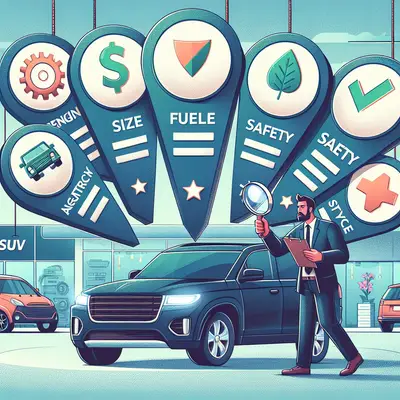1. Power and Performance
When it comes to SUVs, power and performance are of paramount importance. Check the engine specifications, including horsepower and torque, to ensure the vehicle can handle different types of terrain. Besides, the transmission type (automatic or manual) and drivetrain (front-wheel, rear-wheel, or all-wheel drive) are also essential factors that impact the SUV's performance.
2. Fuel Efficiency
With rising fuel prices, an SUV with good fuel efficiency can save you a lot of money in the long run. Check the miles per gallon (MPG) ratings of the vehicle in both city and highway conditions. Remember, a higher MPG rating means lower fuel consumption, making the vehicle more economical to run.
3. Safety Features
Safety should never be compromised. Look for SUVs equipped with advanced safety features like anti-lock braking systems (ABS), electronic stability control (ESC), and numerous airbags. Advances in technology have introduced new safety features like adaptive cruise control, blind-spot detection, and automatic emergency braking, which are worth considering.
4. Interior Comfort and Tech Features
Comfort is key, especially for long drives. Check the quality of the seats, the space available, and the noise levels inside the car. Tech features like a touch-screen infotainment system, navigation, rear-view camera, and smartphone connectivity can enhance your driving experience.
5. Resale Value
While buying an SUV, it's wise to consider its resale value. Some brands and models hold their value better than others. A vehicle with a high resale value can be a smart investment as it can reduce your overall cost of ownership.
Conclusion
Choosing the right SUV requires thorough research and consideration. This five-point checklist serves as a guide to help you make an informed decision. Remember, the best SUV is not just about power and performance, but also about safety, comfort, fuel efficiency, and resale value. Happy SUV hunting!



